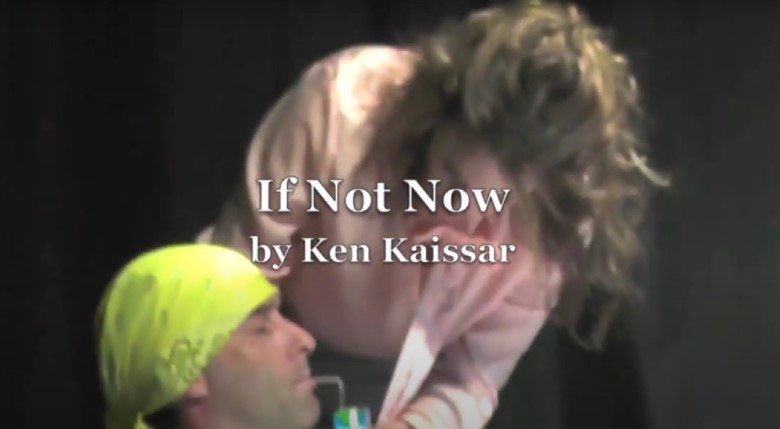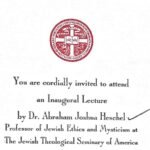Yoni Oppenheim
Shabbat could be seen as this big hurdle and limitation. Heschel offers a framework to say Shabbat is not a bad thing.
24/6: A Jewish Theater Company
New York City, New York
A Jewish Perspective
Transcribed from an Interview
My first association with Heschel was riding the Manhattan Day School bus. Students from the Heschel School were on the bus, and I didn’t know who the school was named for—a benefactor? I became fully aware of who Heschel was as a student at NYU when we started creating art and culture Shabbat dinners, and Heschel’s metaphors for art and practice became a focal point.
I was invited to start this theater company with a friend from high school. We started inviting friends and people we knew who were Shabbat observant to conversations of what would it mean to have a Shomer Shabbat theater company. We had salons of artists, and we chose to learn together a section of The Sabbath. The focus ultimately creatively was “The Splendor of Space,” the story of Rabbi Yochanan Ben Zachai that Heschel retells from the Talmud.
Our first show was Shabbat Variations, which showed different people’s responses to this story. Heschel was essential for this exploration as a writer of such rich language with a positive view of the Sabbath. In thinking about creating a Shabbat-observant theater company, we were unified in the goal of wanting to make theater, and Shabbat observance is the biggest challenge, right? But Shabbat is the reason we created a company.
Shabbat could be seen as this big hurdle and limitation. As a performer you’re told, you’re never going to work. I was told by people not to study theater; it’s a fool’s errand for many reasons: Shabbat; the rules of tzniut (modesty). With this very loud discouragement, we found the choice of someone who spoke so articulately about Shabbat was positive for us. Heschel offers a framework to say Shabbat is not a bad thing. As shomer shabbat artists, we understand the positives of the day. We didn’t want to come into process with a sense of negativity.
Judaism has a conflicted relationship with the arts, because the arts stem back into ritual. For the Greeks, theater was a ritual practice; it was used for festivals to gods like Dionysus. So the idea of idolatry and the arts is intertwined, and that’s the challenge of art in a Jewish context. This is a challenge for many religious groups—they are striving for this connection to something higher and deeper. Heschel, on the other hand, embraced the arts. I particularly appreciate this quote of Heschel’s:
The meaning of life is to build a life as if it were a work of art.
Additional Text:
New Theater Troupe Dark on Sabbath (New York Jewish Week)
For New Theater Company, Shabbat Takes Center Stage (Forward)


